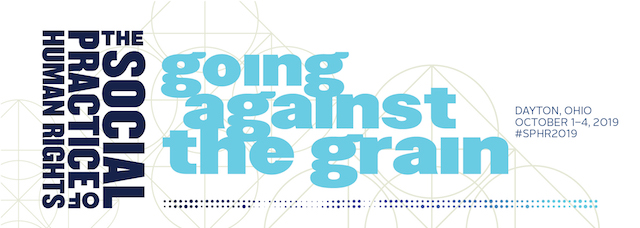Location
Defending Human Rights
Start Date
10-4-2019 10:30 AM
End Date
10-4-2019 12:00 PM
Keywords
racial justice, torture, United Nations, shadow reporting, Ferguson
Abstract
In December 2014, nearly four months after the shooting of Michael Brown, a delegation that included Brown's parents testified in front of the Committee against Torture in Geneva, Switzerland. While protest continued on the ground in Ferguson, Missouri (USA), this team delivered a report to the Committee that articulated the human rights claims of protestors to the international community. But, why? What did the delegation hope to accomplish that could not be satisfied through domestic channels, especially in a liberal democracy? Drawing on interviews with delegates and primary source research, I will examine rationales that may explain the political strategy driving the globalization an American social movement for racial justice. This paper contributes to debates within the literature on transnational advocacy and, by introducing an American case study, additional implications will be brought to bear on issues including US decline, the purpose and functionality of global human rights mechanisms, and the trajectory of the broader Black Lives Matter movement in the context of global networks of struggle and solidarity.
Author/Speaker Biographical Statement(s)
Joel R. Pruce is an Assistant Professor of Human Rights Studies, University of Dayton.
Included in
Ferguson to Geneva: Bringing an American Movement for Racial Justice to the World
Defending Human Rights
In December 2014, nearly four months after the shooting of Michael Brown, a delegation that included Brown's parents testified in front of the Committee against Torture in Geneva, Switzerland. While protest continued on the ground in Ferguson, Missouri (USA), this team delivered a report to the Committee that articulated the human rights claims of protestors to the international community. But, why? What did the delegation hope to accomplish that could not be satisfied through domestic channels, especially in a liberal democracy? Drawing on interviews with delegates and primary source research, I will examine rationales that may explain the political strategy driving the globalization an American social movement for racial justice. This paper contributes to debates within the literature on transnational advocacy and, by introducing an American case study, additional implications will be brought to bear on issues including US decline, the purpose and functionality of global human rights mechanisms, and the trajectory of the broader Black Lives Matter movement in the context of global networks of struggle and solidarity.



